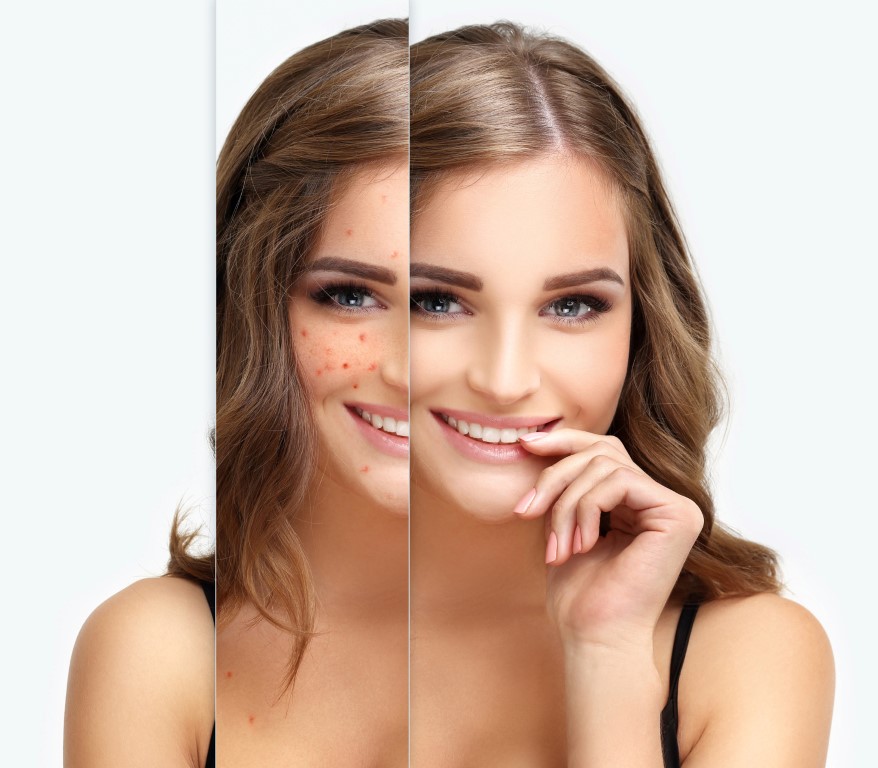Acne occurs when pores on your face, neck, chest, back or upper arms get plugged. This typically results in comedones (blackheads and whiteheads). The continuous production of oil by the plugged pore can also result in bacterial overgrowth and inflammation which results in painful acne (pustules or inflammatory cysts).
After an initial consultation with a dermatologist, the doctor will discuss the best possible treatments which can include oral prescriptions, injections, topical ointments (both prescription and non-prescription) and/or acne surgery/extractions or peels with our clinical estheticians.
Acne surgery is a treatment performed by an esthetician in our office working under the supervision of a doctor. The purpose is to professionally cleanse the skin, extract blackheads and whiteheads and clean clogged pores. Acne surgery helps to reduce current acne outbreaks. Patients receiving acne surgery treatments must continue to have periodic visits with the dermatologist for acne management. Acne surgeries are often covered by insurance.
Therapies
These therapies may be suggested in select cases, either alone or in combination with medications.
- Light therapy. A variety of light-based therapies have been tried with success. But further study is needed to determine the ideal method, light source and dose. Light therapy targets the bacteria that cause acne inflammation. Some types of light therapy are done in a doctor’s office. Blue-light therapy can be done at home with a hand-held device.Possible side effects of light therapy include pain, temporary redness and sensitivity to sunlight.
- Chemical peel. This procedure uses repeated applications of a chemical solution, such as salicylic acid. It is most effective when combined with other acne treatments, except oral retinoids. Chemical peels aren’t recommended for people taking oral retinoids because together these treatments can significantly irritate the skin.Chemicals peels may cause temporary, severe redness, scaling and blistering, and long-term discoloration of the skin.
- Extraction of whiteheads and blackheads. Your dermatologist uses special tools to gently remove whiteheads and blackheads (comedos) that haven’t cleared up with topical medications. This technique may cause scarring.
- Steroid injection. Nodular and cystic lesions can be treated by injecting a steroid drug directly into them. This improves their appearance without the need for extraction. The side effects of this technique include thinning of the skin, lighter skin and the appearance of small blood vessels on the treated area.




